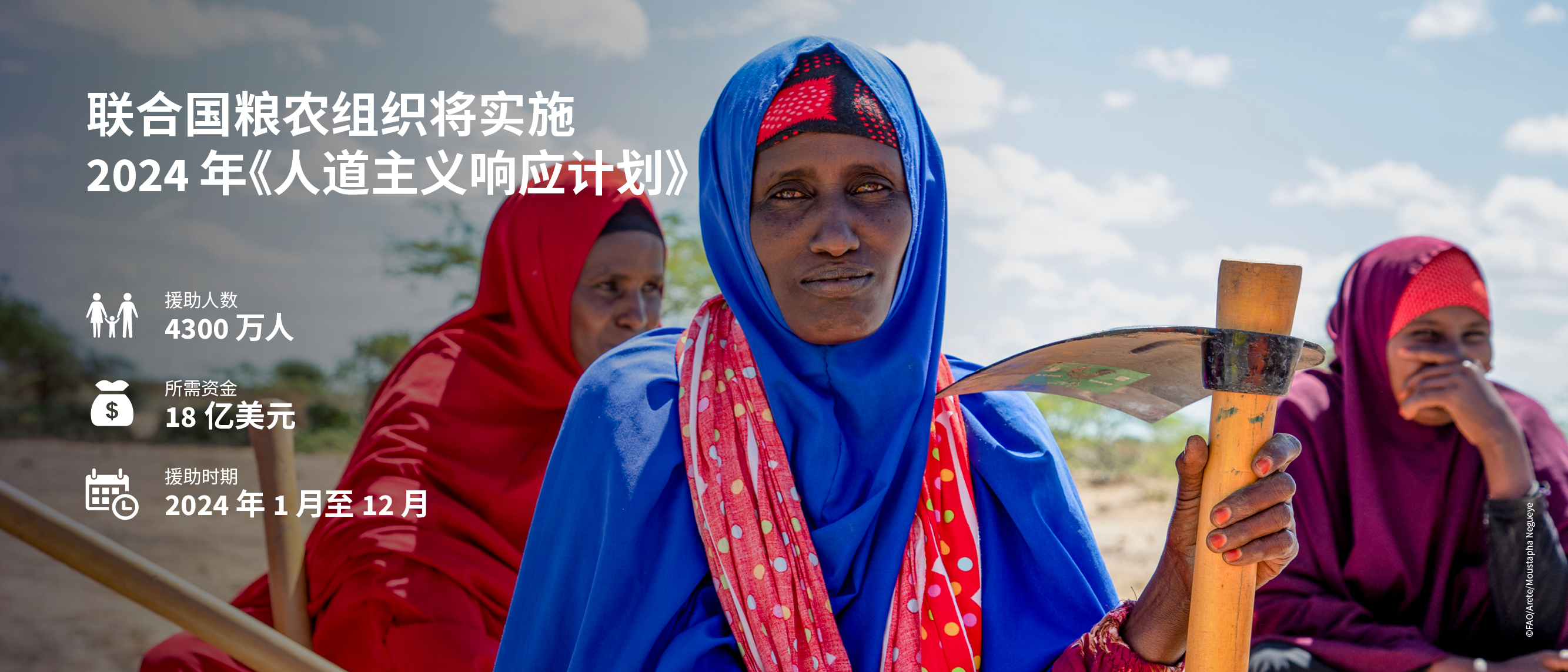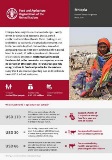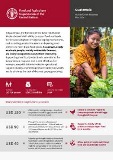

联合国粮农组织将实施2024年《人道主义响应计划》
12/2023
2022年底,《全球粮食危机报告》指出,即便在最高的人道主义响应筹资水平之下,分布在53个国家的10亿待援助对象中仍有四分之一面临突发粮食不安全状况,并创下新高。
2023年,人道主义需求全年居高不下,令人忧心:53个国家2.58亿民众面临突发粮食不安全状况。同时,人道主义预算开始收紧,援助缺口达数百万人。
预期2024年全球粮食危机还将继续。气候危机引发极端天气事件,新冲突暴发,旧冲突加剧,经济不稳定,各项因素交织重叠,不断推高人道主义需求。
人道主义需求高位徘徊,而双边捐助方供资水平可能进一步缩小,这意味着制定2024年《人道主义响应计划》的过程中,必须紧紧围绕最危险人群和最具成本效益的举措,满足其短期内的粮食安全需求。
2024年,在《人道主义响应计划》框架下,联合国粮农组织将筹措总计18亿美元,帮助4300万民众生产粮食。当前,供资水平缩小,提供该资金支持既是在拯救生命,也具有成本效益,捐助方平均每捐助50美元,农户就将生产300美元的粮食。
Ethiopia: Humanitarian Response Plan 2024
06/2024
Ethiopia faces major humanitarian challenges, mainly driven by climate and economic shocks, armed conflict and food chain threats.

Guatemala: Humanitarian Response Plan 2024
04/2024
In Guatemala, the high cost of the basic food basket hinders households’ ability to access food and leads to increased adoption of negative coping mechanisms, such as selling productive assets or depleting seed reserves to meet basic food needs.

Haiti: Humanitarian Needs and Response Plan 2024
02/2024
Agriculture is an increasingly vital lifeline for people in Haiti. Rising insecurity and low harvests have pushed food prices up.

Honduras: Humanitarian Needs and Response Plan 2024
07/2024
Honduras is experiencing a multifaceted crisis, mainly due to widespread violence, climate extremes and forced population movements.

Mali: Humanitarian Needs and Response Plan 2024
03/2024
Conflict and recurrent climate shocks continue to increase humanitarian needs across Mali.
